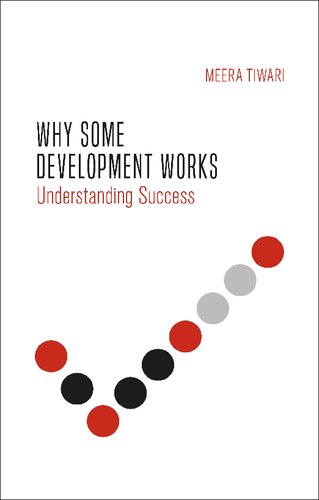

Most ebook files are in PDF format, so you can easily read them using various software such as Foxit Reader or directly on the Google Chrome browser.
Some ebook files are released by publishers in other formats such as .awz, .mobi, .epub, .fb2, etc. You may need to install specific software to read these formats on mobile/PC, such as Calibre.
Please read the tutorial at this link: https://ebookbell.com/faq
We offer FREE conversion to the popular formats you request; however, this may take some time. Therefore, right after payment, please email us, and we will try to provide the service as quickly as possible.
For some exceptional file formats or broken links (if any), please refrain from opening any disputes. Instead, email us first, and we will try to assist within a maximum of 6 hours.
EbookBell Team

4.0
66 reviewsWhy do some development projects succeed where others fail? This book looks at some macro and some less known micro success stories and considers what enabled them to bring change in some of the world's most deprived communities. Using case studies from ten countries across Latin America, Africa, and Asia, Tiwari's innovative approach offers a multi-layered understanding of poverty which provides insights into causal, enabling and impeding factors. While a macro level analysis of development is a common feature of the current literature, there has been little attempt to develop a micro level understanding of development at the grassroots.
Tiwari's work fills this important gap while drawing attention to the importance of engaging local actors at an individual, collective, and state level, demonstrating how achieving a “convergence” of goals among all actors is a crucial component to a development project's success.
Looking beyond the case studies to consider how this unique “convergence framework” might be usefully applied to other contexts, the book has profound implications for how we view fragile states and conflict zones, and the ability of the international agencies to take effective action. A unique study based on extensive empirical research, Why Some Development Works will make essential reading for students and researchers studying international development across the social sciences, as well as humanitarian and development practitioners and policy makers.